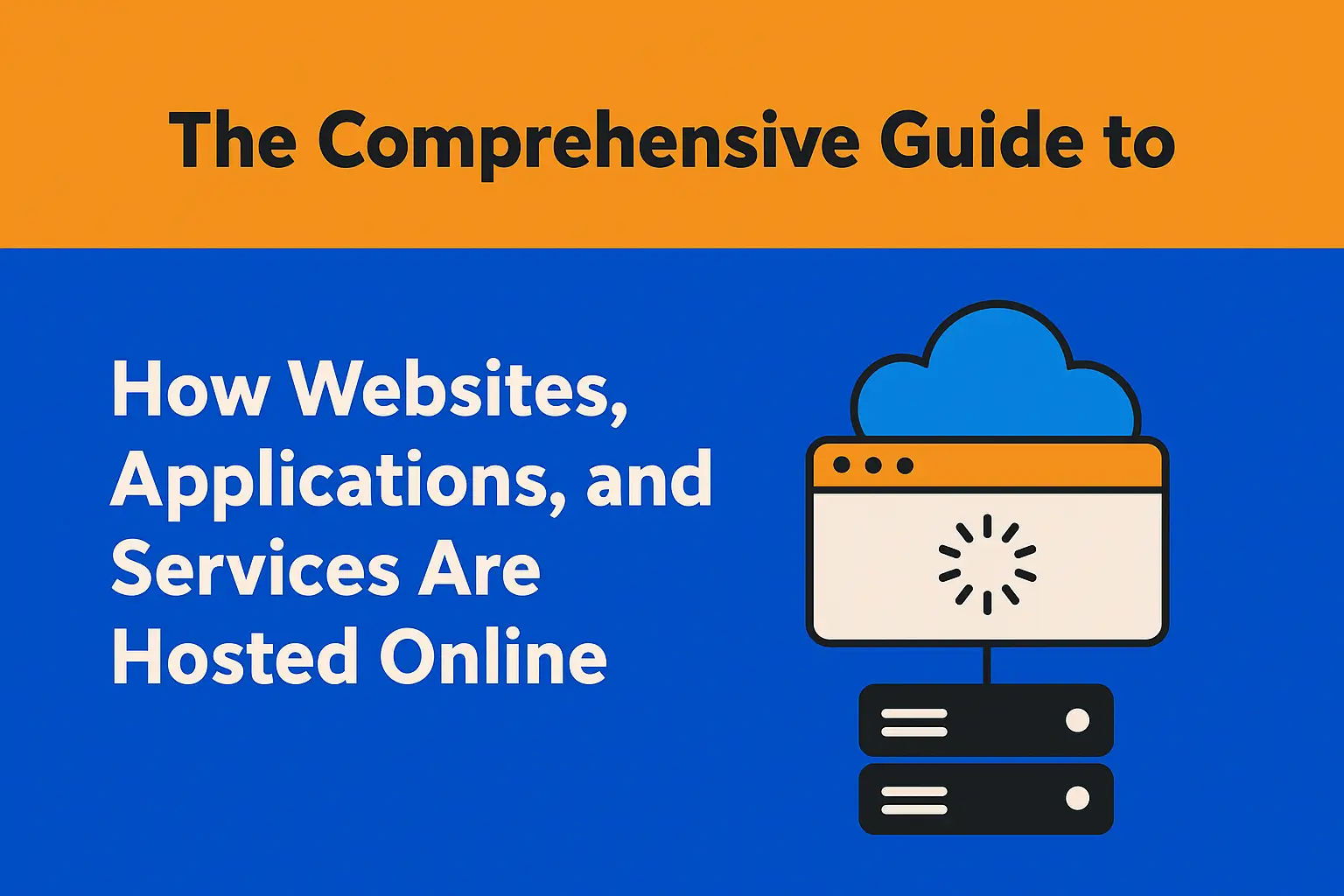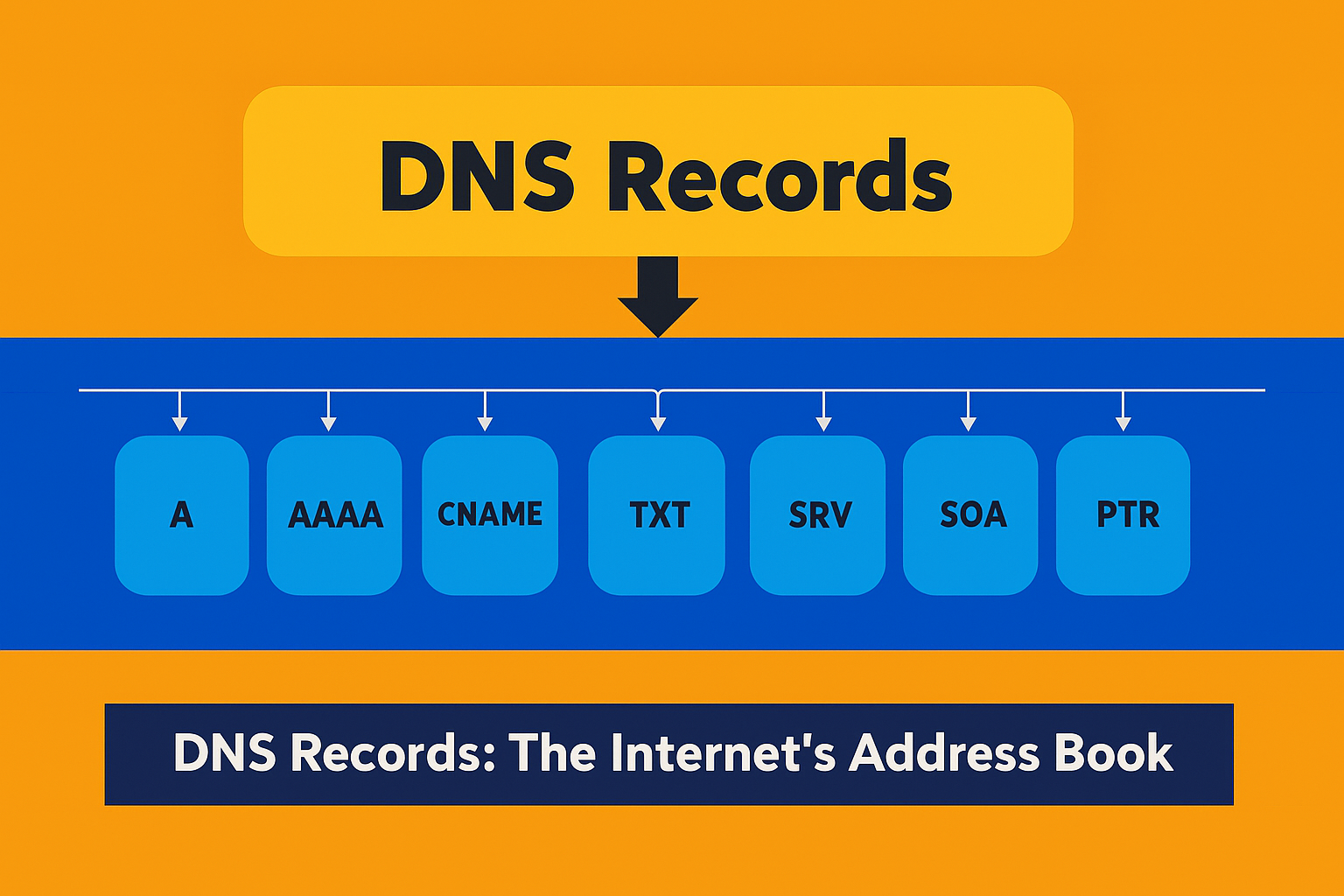
Introduction to Hosting Services
In the digital landscape, web hosting services play a pivotal role in bringing websites to life. Acting as the foundation upon which websites operate, hosting services are essential for ensuring that online platforms remain accessible, performant, and reliable. Every time a user visits a website, the data they access is stored on a server provided by a web hosting service. This service makes it possible for websites to be available around the clock, offering critical resources like storage space, bandwidth, and server maintenance.
Two predominant types of web hosting services are shared hosting and cloud hosting. Shared hosting is typically the first choice for small businesses and personal websites due to its cost-effectiveness and simplicity. In shared hosting, multiple websites share a single server’s resources, which helps keep costs low but can potentially impact performance when server demand is high. On the other hand, cloud hosting has been gaining popularity for its scalable, flexible, and robust nature. Cloud hosting distributes resources across multiple servers, ensuring higher uptime, better load management, and enhanced scalability. This makes it an attractive choice for businesses with fluctuating traffic and those requiring reliable and high-performance hosting solutions.
Both styles of hosting serve the critical function of keeping websites online and ensuring that end-users have seamless access to digital content. They provide the necessary infrastructure to support website functions, from image hosting to running complex applications. Selecting the right type of hosting service is crucial as it directly impacts factors such as page load speed, security, and the overall user experience. Understanding the advantages and limitations of shared hosting and cloud hosting is thus essential for making an informed decision aligned with one’s specific needs and goals.
What is Shared Hosting?
Shared hosting is a type of web hosting where multiple websites are hosted on a single server, sharing the server’s resources such as CPU, RAM, and storage. This method is akin to residents sharing a communal living space; each website, while having its own domain and content, operates within the constraints of the overarching server’s capacity.
Typically, hosting providers manage the server, alleviating the need for individual website owners to understand the technical intricacies of server management. Given this structure, shared hosting is a cost-effective solution, making it particularly attractive for small businesses and personal websites that do not anticipate substantial levels of traffic or resource-intensive functionalities.
Cost-effectiveness is a significant advantage of shared hosting. Due to the shared resource model, hosting providers can offer their services at a lower price point compared to more isolated hosting solutions like VPS or dedicated servers. This affordability, coupled with the ease of use entailed by provider-managed backends, underscores the widespread popularity of shared hosting among beginners and those with limited budgets.
Additionally, many shared hosting packages come with user-friendly control panels, enabling users to manage their websites, emails, and databases efficiently without needing advanced technical skills. This ease of use is another contributing factor to the popularity of shared hosting among those new to web development or with straightforward hosting needs.
However, it’s important to recognize that sharing server resources also introduces certain limitations. Websites on shared hosting plans may experience performance fluctuations, especially during peak traffic times, as server resources are divided among multiple sites. While this may not significantly impact smaller, lower-traffic websites, it does pose a challenge for rapidly growing websites or those requiring more substantial server capabilities. Despite these limitations, shared hosting remains an optimal choice for many due to its balance of affordability, convenience, and sufficient functionality for a wide range of users.
What is Cloud Hosting?
Cloud hosting represents a modern approach to hosting websites, leveraging the power of multiple interconnected servers to provide resources, storage, and computational power. Unlike traditional shared hosting, where multiple websites share the resources of a single physical server, cloud hosting distributes the load across several servers. This decentralized structure enhances performance, reliability, and flexibility, making it an attractive option for many online businesses.
The core working mechanism of cloud hosting involves pooling resources from various servers to form a single, virtualized environment. This ensures that if one server experiences high traffic or fails, others can seamlessly take over the load, maintaining optimal performance and uptime. This redundancy is a key differentiator from shared hosting, where the failure or overloading of a single server directly impacts all the websites hosted on it.
One of the primary advantages of cloud hosting is its superior reliability. Since the infrastructure does not depend on a single point of failure, issues in one part of the system do not cripple the entire service. This results in more consistent uptime and reduced risk of downtime. Scalability is another prominent benefit; businesses can easily adjust their resources based on their changing needs without significant downtime or the need for physical hardware upgrades.
Flexibility is also a hallmark of cloud hosting. Businesses can customize their hosting environment, selecting the precise amount of storage, computing power, and memory required. This not only optimizes performance but can also be cost-effective, as companies only pay for the resources they actually use.
Typical use cases for cloud hosting include high-traffic websites that require robust performance and businesses that need uninterrupted uptime to ensure smooth operational continuity. E-commerce platforms, media sites, and large-scale enterprises often rely on cloud hosting to handle substantial web traffic and provide a seamless user experience.
Performance and Reliability
When evaluating web hosting options, the performance and reliability of shared hosting versus cloud hosting are pivotal considerations. Shared hosting, as its name suggests, involves multiple websites sharing the same server resources including CPU, memory, and bandwidth. This shared resource environment can often lead to slower performance, particularly during peak traffic periods. For instance, if one website on a shared server experiences a sudden surge in traffic, it can severely impact the loading speeds and availability of all other websites hosted on the same server. This potential for “noisy neighbor” issues makes shared hosting less reliable, especially for resource-intensive or high-traffic websites.
On the contrary, cloud hosting leverages a network of interconnected servers distributed across various data centers. This decentralized approach allows for better performance and reliability. One of the key technological advantages of cloud hosting is load balancing, which distributes incoming traffic across multiple servers to ensure no single server becomes overwhelmed. For example, if a website hosted on a cloud environment suddenly experiences increased traffic, the load balancer will reroute the excess traffic to other servers, maintaining optimal performance levels. Redundancy in cloud hosting environments means that if one server fails, another is automatically initiated, minimizing downtime.
Another critical factor contributing to the superior reliability of cloud hosting is its scalability. Websites hosted on cloud servers can easily scale resources up or down based on demand. This flexibility ensures consistent performance even during traffic spikes. Conversely, websites on shared hosting cannot easily scale resources due to the fixed nature of server capacities.
In practical scenarios, shared hosting might be sufficient for small personal blogs or static websites that do not experience significant traffic. However, for businesses requiring high availability and responsive user experience, cloud hosting is the more reliable choice. The combination of load balancing, redundancy, and scalability in cloud hosting environments makes it clear why many enterprises prefer this hosting solution.
Security Features
When evaluating the security features of shared hosting and cloud hosting, there are notable differences to consider. Shared hosting environments present potential security risks primarily because multiple websites share the same server resources. The lack of strict isolation between accounts can result in vulnerabilities; if one website is compromised, others on the same server may be affected. This level of shared resource allocation can expose sensitive data and create an easier pathway for cyber-attacks.
On the other hand, cloud hosting offers enhanced security measures that considerably improve upon those found in shared hosting. One of the principal advantages of cloud hosting is data encryption, both in transit and at rest. This ensures that sensitive information remains secure from unauthorized access and minimizes the likelihood of data breaches. Additionally, cloud hosting providers typically implement automated backup solutions, which ensure that data can be quickly restored in the event of a security incident or data loss.
Furthermore, the cloud environment inherently provides better isolation of accounts and resources. Each client operates within a virtualized environment that separates their data and applications from those of other users. This significant level of isolation prevents any cross-account contamination—if one account is infiltrated, the integrity of others remains intact.
Beyond these intrinsic security advantages, cloud hosting providers often offer an array of additional security options. These may include advanced firewalls, Distributed Denial of Service (DDoS) protection, and intrusion detection systems to further protect client data from potential threats. By leveraging these robust and flexible security tools, cloud hosting can deliver a more resilient and secure hosting solution, making it a preferred choice for businesses that prioritize the safety and integrity of their data.
Scalability and Flexibility
When considering the growth and adaptability of your online presence, the scalability and flexibility of your hosting solution play a critical role. Shared hosting often presents significant limitations in this area. Due to the fixed allocation of resources in a shared hosting environment, scaling up can be challenging. Increased traffic often leads to strained resources, potentially resulting in slower load times or downtime. Upgrades in shared hosting usually require migrating to a higher plan or even a different server, which can disrupt service and prove time-consuming.
In stark contrast, cloud hosting is designed to be highly scalable and flexible. Utilizing a network of interconnected servers, cloud hosting allows for seamless and real-time adjustments to resource allocation based on current demand. For instance, during peak usage times, such as Black Friday or Cyber Monday for e-commerce websites, resources can be ramped up without any significant downtime or disruption. This adaptability ensures uninterrupted service and optimal performance, effectively managing spikes in traffic without the traditional constraints experienced in shared hosting.
Consider a scenario where an e-commerce website experiences a sudden surge in visitors during a flash sale. With shared hosting, this unexpected increase could overwhelm the server, leading to slow page loads or even crashes, frustrating potential customers and resulting in lost sales. Conversely, with cloud hosting, the site can automatically scale its resources to handle the influx, maintaining fast load times and a seamless user experience. This dynamic scalability not only supports immediate needs but also positions a business for long-term growth, adapting to changing demands without costly infrastructure overhauls.
Thus, cloud hosting emerges as a more versatile and reliable solution for businesses aiming for growth and responsiveness in an ever-evolving digital landscape, offering a prominent edge over the fixed resources model of shared hosting.
Cost Considerations
When evaluating the cost implications of shared hosting and cloud hosting, it is crucial to consider both initial and long-term expenses. Shared hosting presents a highly affordable entry point, making it an attractive option for individuals and small businesses with limited budgets. Typically, shared hosting plans come with lower monthly fees, often under $10, which include essential services like domain name registration, basic website builders, and minimal customer support. These low costs, however, come with certain trade-offs in terms of performance and scalability, as resources are shared among multiple tenants on the same server.
Conversely, cloud hosting tends to have higher initial costs, which may seem prohibitive for startups or sole proprietors. Cloud hosting plans often start in the range of $30 to $50 per month, depending on the specific features and configurations selected. However, these higher premiums generally translate to superior performance, enhanced reliability, and significant scalability. The dynamic nature of cloud hosting allows businesses to adjust their computing resources in real-time, scaling up or down based on demand, which can reduce overall expenditure during off-peak periods.
To provide a comprehensive cost-benefit analysis, one must consider long-term value over immediate expense. Shared hosting’s value diminishes for growing businesses or high-traffic websites that require more resources, potentially leading to higher costs as additional services or upgrades are needed. In contrast, cloud hosting’s scalable infrastructure aligns better with businesses experiencing consistent growth or fluctuating traffic patterns. Over time, the ability to optimize resource usage and prevent downtime can lead to cost savings and higher returns on investment.
In summary, the choice between shared hosting and cloud hosting hinges on specific needs and long-term goals. While shared hosting offers an affordable entry point for those with limited immediate requirements, cloud hosting generally provides better performance and future-proof scalability, making it a more prudent investment in the long term for businesses poised for growth.
Choosing the Right Hosting Solution for Your Needs
When it comes to selecting the appropriate hosting solution, it is imperative to evaluate various key factors to ensure that the chosen option aligns with your specific needs. Both shared hosting and cloud hosting have their unique advantages and limitations. To make an informed decision, consider the following aspects:
Budget: Shared hosting is generally more affordable compared to cloud hosting. If you are operating on a tight budget, the cost-effectiveness of shared hosting might make it an attractive option. However, investing a bit more in cloud hosting can provide long-term benefits in terms of scalability and performance.
Website Purpose: The type of website you are planning to host significantly influences your choice. Shared hosting is well-suited for personal blogs, portfolios, and small business websites that do not require extensive resources. Conversely, cloud hosting offers robust support for e-commerce platforms, large-scale applications, and websites experiencing variable traffic patterns.
Expected Traffic: If you anticipate high traffic volumes or significant growth, cloud hosting offers better scalability and can handle sudden traffic spikes without compromising performance. Shared hosting may struggle under heavy load, impacting the accessibility and speed of your site.
Security Needs: For websites that handle sensitive information, security is paramount. Cloud hosting typically provides advanced security features, including data encryption, regular backups, and compliance with industry standards. Shared hosting environments, although secure, offer limited control over security configurations, making them less ideal for highly confidential projects.
Future Growth Plans: Cloud hosting excels in scalability, allowing you to easily upgrade resources as your website expands. This flexibility ensures that your hosting plan can adapt to the evolving demands of your growing business. Shared hosting, while cost-effective initially, might require a future upgrade to a more robust solution as your needs change.
Consider the scenario of an online store experiencing seasonal sales peaks. Cloud hosting would be advantageous here due to its ability to seamlessly scale resources to accommodate increased traffic and ensure a smooth user experience. On the other hand, a personal blog with stable, moderate traffic might benefit more from the cost-effectiveness and simplicity of shared hosting.
Ultimately, the choice between shared hosting and cloud hosting depends on a careful assessment of your specific requirements. By thoroughly evaluating your budget, website purpose, expected traffic, security needs, and growth plans, you can select the hosting solution that best supports your goals. Making an informed decision will ensure that your website remains functional, secure, and capable of meeting future demands.





0 Comments